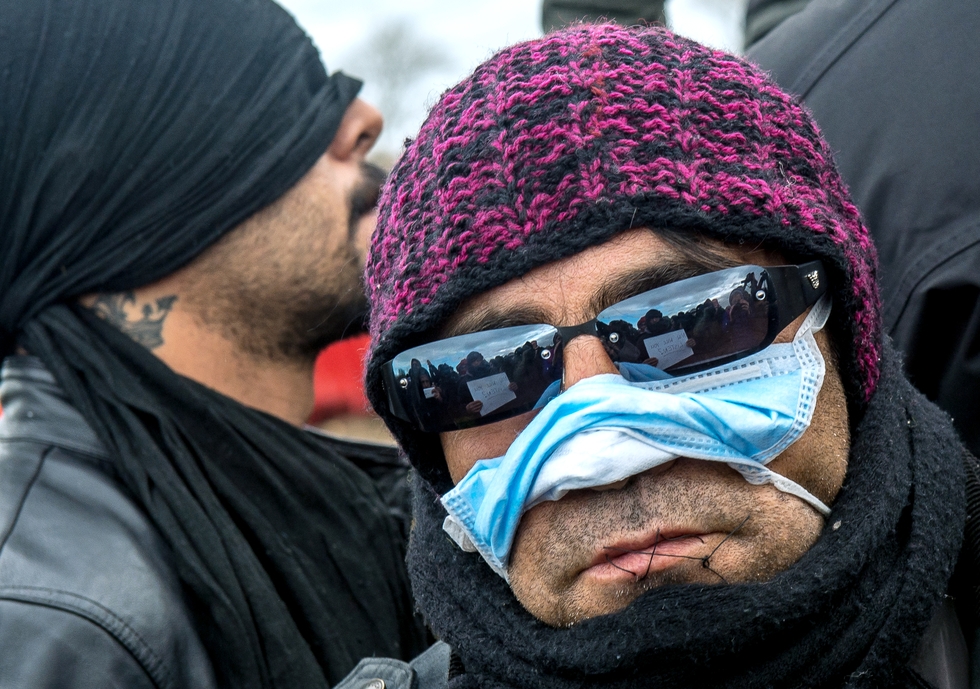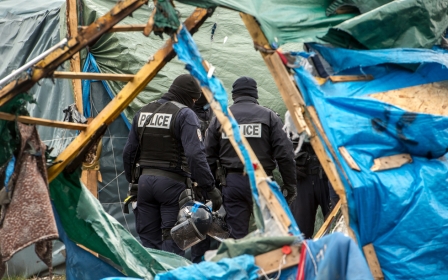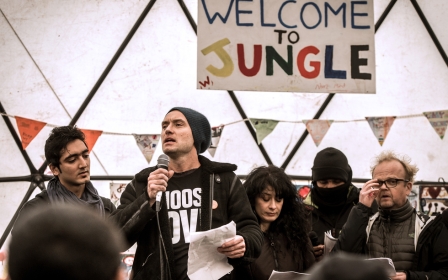Calais migrants sew lips together in protest at camp destruction

A group of migrants in the Jungle camp in Calais have sewn their lips together as they began a hunger strike protest at the camp's partial demolition.
The six Iranians also wore blindfolds on Thursday after French authorities spent three days bulldozing temporary homes in the camp, which is home to thousands of people attempting to get into the UK.
The symbolic protest has been used before by migrants in other parts of Europe but it is believed to be the first such use of the tactic in Calais.
The Iranians held up a sign urging the UN to investigate conditions at the camp, and also held up placards reading 'We are humans' and 'Where is our freedom?'
The protest came as the UK promised to spend $20mn on improving security around the camp and borders in an announcement that coincided with the visit of British Prime Minister David Cameron to Amien to discuss the refugee crisis.
The UK relies on France to prevent attempts by migrants to reach its shores under an agreement that places the physical border between the two countries on the French mainland.
France cleared hundreds of temporary shelters from the camp earlier this week in what the French government said was an attempt to improve conditions and move Jungle residents to prefab camps further inland.
France has also offered to grant residents asylum in France. However, many claim to have relatives in the UK and are determined to claim asylum when they reach southern England. Many have died while trying to smuggle themselves onto trucks and trains headed to the UK.
In a statement, Calais town hall said the protest had aroused "deep emotion".
"But at the same time, nothing justifies such extremes when the state has done everything to take the migrants out of these undignified conditions," it said.
New MEE newsletter: Jerusalem Dispatch
Sign up to get the latest insights and analysis on Israel-Palestine, alongside Turkey Unpacked and other MEE newsletters
Middle East Eye delivers independent and unrivalled coverage and analysis of the Middle East, North Africa and beyond. To learn more about republishing this content and the associated fees, please fill out this form. More about MEE can be found here.




